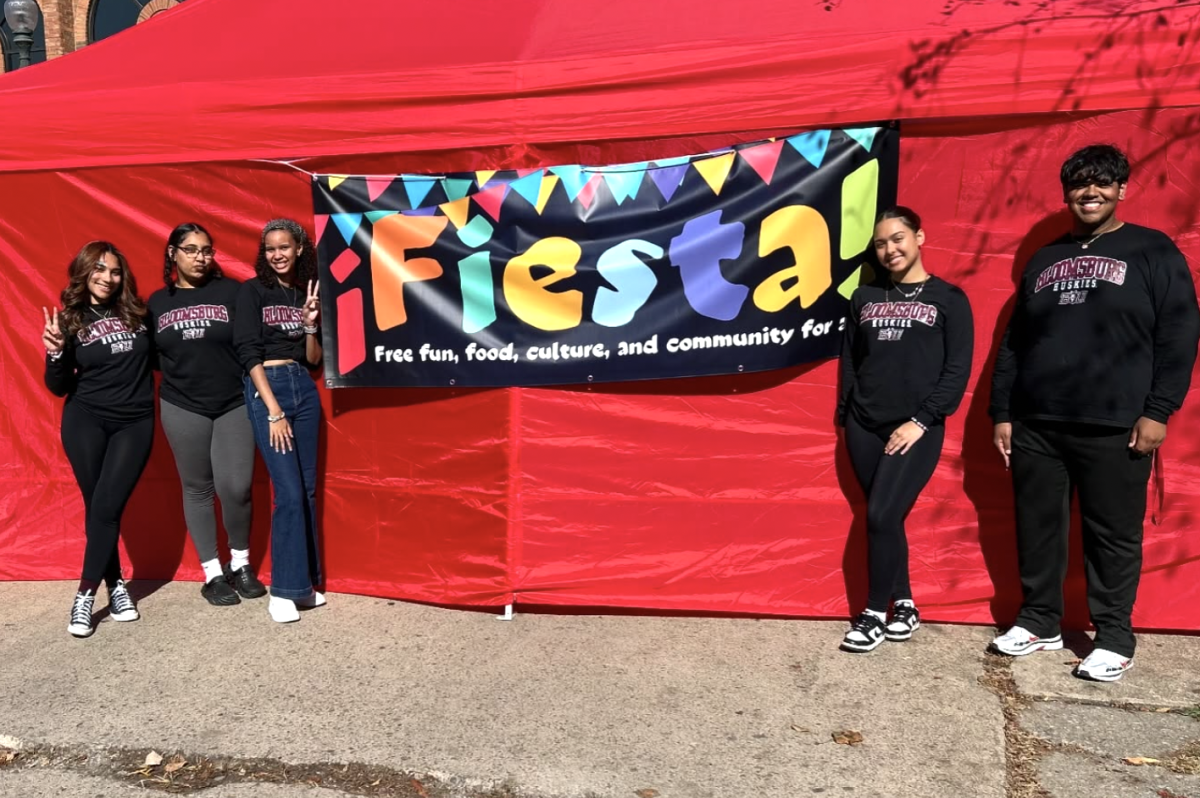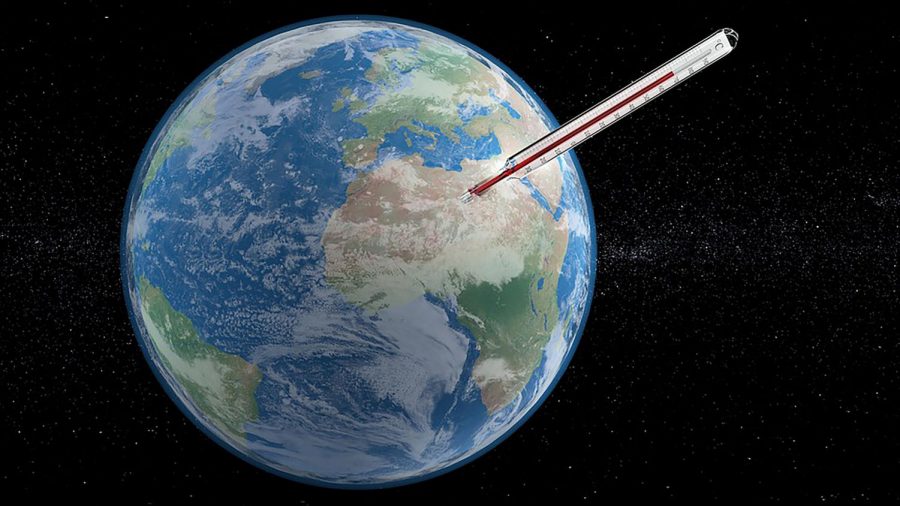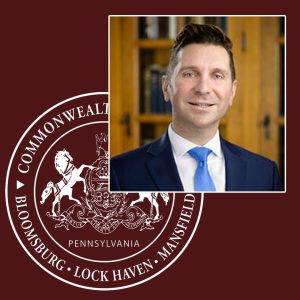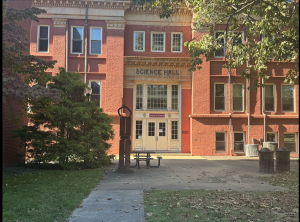Fearmongering is not the way
Social media can do more harm than good
September 12, 2019
I’m just going to be frank here: climate change is a real thing and I do believe in it. I am in no way trying to deny the severity of our situation in regards to our climate. But I’m also not about to say that I respect how it’s being talked about in our media, because I just don’t.
Now, let me back up for a minute. At the end of August, my social media feed exploded with posts about the Amazon Rainforest fires. Half of the celebrities I followed on Instagram decided to post about it because, apparently, this is part of their job. Every day, consistently, I saw multiple posts about these fires. They were nonstop.
And then, finally, the newspapers and programs on TV picked it up. They started running stories about how damaging these fires could be. As a person with extensive anxiety, I naturally started panicking. “Was the apocalypse coming in the next week?”, I wondered.
No one should ever have to wonder that. I don’t care how religious you are or if you aren’t at all. I don’t care if you believed that the world was going to end in 2012. None of that matters to me, truthfully. These are examples of fearmongering at its best and it is damaging to our society.
Okay, maybe I’m the only one who thinks this, but maybe I’m also not.
My panic surged drastically. I felt compelled to donate money to a charity for the rainforest in a vain attempt at somehow being of help, even if it was just $25 from my savings. It felt good for a minute, but I quickly realized that feeling wasn’t bound to last.
Why? Right, because my effort will never be enough.
Within the next few days, all of my ads were curated to websites that asked me to donate to the Amazon. The posts continued on my feed. The Discover page on Snapchat posted stories that somehow demanded we do more while simultaneously telling us it will never be enough.
Which is it? Do you want more or do you want me to just sit back and deal with the impending doom of my future? It’s a question I’m reminded of every single day.
At some point, it became too much for me. I logged out of Instagram and Facebook and refrained from using the Discover page on Snapchat. Allow me to repeat: my anxiety about our “impending doom” was so intense that I had to remove myself from my social media for days because I could not handle the constant negativity.
This is a problem. None of us average citizens are scientists or climatologists. We do not know the specifics of global warming. We do not understand the damage a fire can cause to the environment. We do not know if the Amazon Rainforest is actually the “lungs of the world” or not. And yet, it is somehow our responsibility to save the world.
Even when we try, though, nothing is ever enough.
Here is an article title I ran across on social media today, from The New Yorker: “What if We Stopped Pretending? The climate apocalypse is coming. To prepare for it, we need to admit that we can’t prevent it.”
My legs feel numb just writing this. It’s giving me anxiety just to entertain this idiotic thought for more than ten seconds. You’re going to tell me that some random person is somehow determining now that we are going to have an apocalypse because of climate change?
This is not what I needed to see today. I’m sorry, but it’s just not.
If you want us to react to climate change, fearmongering is not the way to go about it. Scaring me into believing we’re all going to die in the next five, ten, thirty years isn’t an effective way to make me want to change the world.
Fearmongering does just that, though. It scares us. Whether it has to do with climate change, religion, politics – it doesn’t matter. Someone might scream at me: You will burn in Hell if you don’t believe in God, and if they do it enough, I just might start to believe them. I might get scared.
But that doesn’t make me want to convert to Christianity, just like inciting visions of the climate apocalypse doesn’t make me want to donate money, get reusable bags, or ride my bike to Walmart.
I recall reading in the 10th grade a story called “Sinners at the Hands of an Angry God.” This story presented us with the ever-important question: is it better to be feared or love? Well, the same concept can be applied here: is it better to make everyone fearful of what might come or should we teach them to love each other, or the Earth, or themselves?
It’s quite simple: for the well-being of all of us and for the well-being of the Earth, we need to teach each other how to love ourselves, other people, and our planet. According to an article called “Fear and Love” on evolutioncounseling.com, “We don’t like the sense of helplessness our fear provokes in us and so we resort to hatred, violence, and destructiveness.”
Clearly, I’m not the only one who sees fearmongering as useless. Instead of compelling us to change, fear only makes us want to hide or act out, but not in a positive way. And it’s exhausting to be in a constant state of fear – something that I know firsthand.
We all know that fear and anxiety/stress are related. This is just an undisputable fact. So when we are constantly bombarded with negativity everywhere we turn, it’s bound to have some negative effects on us that are more harmful than helpful to not only ourselves, but also the causes we claim to care so much about.
From the University of Minnesota, here are some facts about what fear and stress can do to your body: “Negative attitudes and feelings of helplessness can create chronic stress, which upsets the body’s hormone balance, depletes the brain chemicals required for happiness, and damages the immune system. Chronic stress can actually decrease our lifespan.”
Yikes, I guess I should say. Of course, we are all going to be stressed out from time to time. There are plenty of things for us to be worried about, from things as big as climate change to others as small as the exam we have next week. But the effect of purposely negative media coverage cannot be helping us overcome this negativity.
In psychology, there is something known as the “negativity bias.” Both reporters and consumers are drawn to negative stories. We have a tendency to be able to remember them more so than positive stories. But that doesn’t mean we should only focus on the negative.
Humans have the potential to do so many wonderful things. We are innovative, creative, and compassionate. That is why young people like Greta Thunberg and Malala Yousafzai speak up for the issues that lie close to their heart. It is why we forge friendships and relationships, why we get pets or plants, and why we might choose to recycle for the health of our planet.
It is only through love that we will be able to live our best lives. Fear will do nothing more than knock us down into the dirt, facedown, too exhausted and panicked to help each other see all of the good that is left in this world.
Kristin is a junior English major and is the Op/Ed Assistant Editor at The Voice.



























